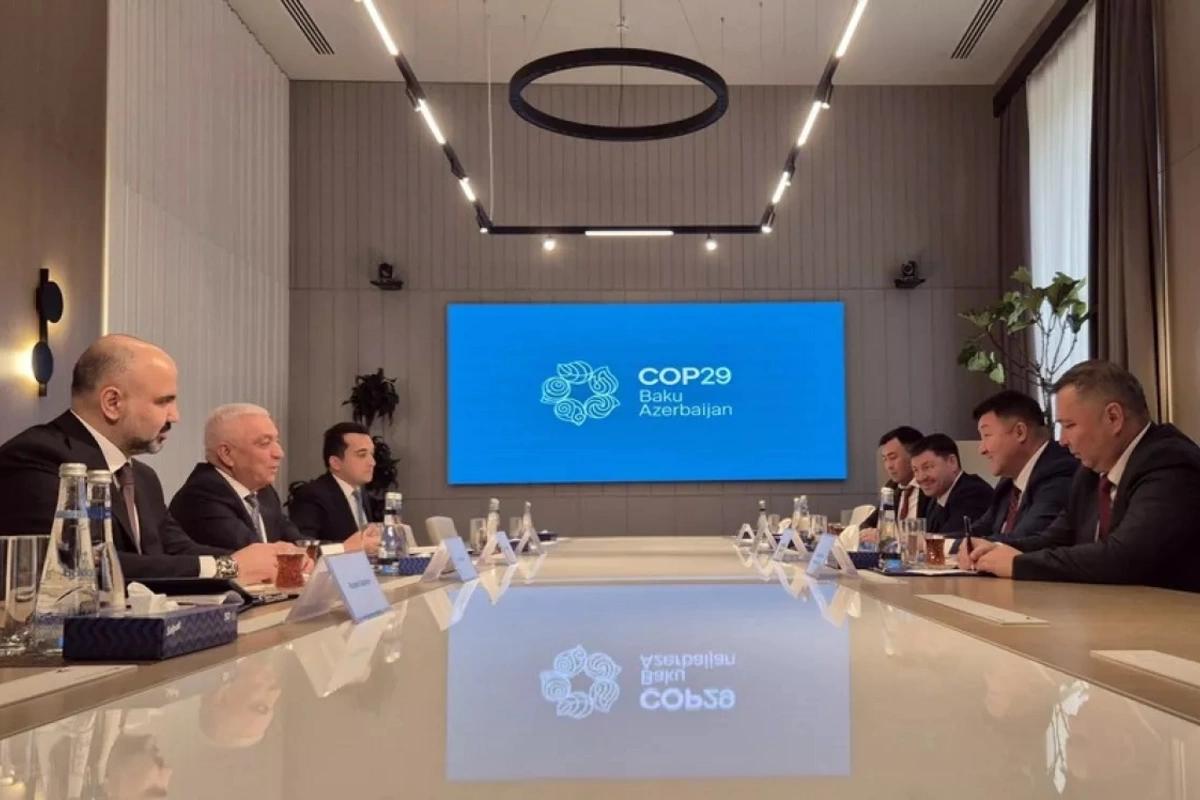
The dialogue highlights both countries' commitment to advancing green energy initiatives and leveraging technological innovations to enhance energy systems.
As part of COP29 in Baku, heads of Azerbaijan’s state energy company, Azerenerji, Baba Rzaev, and National Electric Networks of Kyrgyzstan, Altynbek Rysbekov, have met to discuss potential collaboration between the energy sectors of the two countries.
The meeting took place on the sidelines of the COP29 conference in Baku, where the two sides explored opportunities for working together on the implementation of new technologies, The Caspian Post reports.
Parties also discussed the integration of renewable energy sources into national power grids and shared experiences in this area.
The dialogue highlights both countries' commitment to advancing green energy initiatives and leveraging technological innovations to enhance energy systems.
Notably, Azerbaijan is dedicated to enhancing its renewable energy capabilities, a key aspect of its strategy to reduce greenhouse gas emissions by 40% by 2050. The country aims to increase the share of renewable energy in its power generation to 30% by 2030, with a focus on diversifying its energy mix and becoming a leader in green energy. As part of its commitment, Azerbaijan will revise its national targets in its forthcoming 1.5°C-aligned Nationally Determined Contribution (NDC).
The nation’s wind energy prospects, both onshore and offshore, are particularly promising, offering substantial opportunities for sustainable power generation. Hydropower currently contributes around 10% of Azerbaijan’s annual electricity output, and the country’s Karabakh and East Zangazur regions, which house 25% of its freshwater resources, are vital to achieving the 2050 Net Zero target within these designated Green Energy Zones.
Azerbaijan’s hydropower infrastructure is anchored by the Mingachevir Hydroelectric Power Plant, with a capacity of 424 MW. The country also boasts an economic potential of 23 GW in solar energy, supported by an ideal climate of 2,400-3,200 hours of sunshine per year. In October, the 230 MW Garadagh Solar PV Plant was launched, and several other solar initiatives are in progress.
Additionally, Azerbaijan holds 3 GW of onshore wind potential and an impressive 157 GW of offshore wind technical capacity. The country is making significant strides with projects in collaboration with key partners such as ACWA Power and Masdar, as it continues to attract interest from both public and private stakeholders. These efforts will be central to the discussions at COP29.
Share on social media